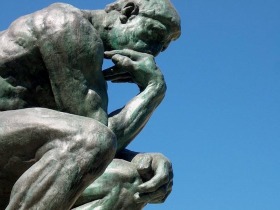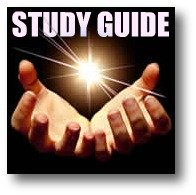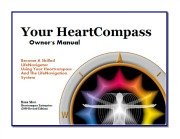The Theory of Knowledge; The Importance of Knowing in real Life.

The Theory of Knowledge, also known as Epistemology, seeks to answer the question, "How do I know that I know?"
If Metaphysics is the study of the true nature of reality, then understanding the true nature of knowledge and belief is critical. What is knowledge? What is belief? And how do the thoughts and feelings that create them shape our lives?
The Theory of Knowledge is so basic and so complex that entire University curriculums are designed around the study of this important subject. Understanding knowledge, and the difference between knowledge and belief, is important because these things shape how we view the world, and therefore how we choose to act within it.
In the ancient language of Sanskrit, the word "to know" literally translates as "to go through".
Anything that you "go through" or experience personally is something you "know". Knowing in this sense is always subjective in nature as two people cannot possibly go through the same thing in the same way, since each one occupies a unique and separate point of view.
Or do they?
The study of metaphysics inevitably leads to the realization that what appears to be separate is in reality connected. While human consciousness occupies billions of unique points of view, it remains one consciousness, or one Universal Mind. Studied from this perspective, the Theory of Knowledge takes on new meaning.
At this point, a demonstration might be more useful than words, so here is something for you to try right now...
Focus on your Heart center and take a nice, long, deep breath. Exhale slowly, then just keep breathing deeply and slowly. Simply observe whatever might be in your awareness right now. Look, listen, smell, taste, touch. Notice your thoughts, your feelings. Simply observe.
Whatever is in your awareness at this moment - that is what you "know".
But what about all the knowledge in your head? The years of study, learning and practice to learn a skill or master a subject? Don't you "know" those things as well?
At the time you were studying, practicing and learning - yes, you did "know" those things. And when you access your memories (also known as Akashik records) you "know" those things again. Knowing is something that can only exist in the present moment. It is not some body of information or knowledge outside of yourself that you must obtain. It is something you experience on a personal level in every moment, and it is always a part of who you are.
What you know is who you are. It is your awareness and experience of each moment of your life. To know is to be alive.
Remember what I said about human consciousness being one Mind appearing as billions?
As human consciousness evolves, the ability to experience multiple points of view becomes possible. This is known as Remote Viewing, Quantum Jumping, Out of Body Experience, etc.
This is a skill that allows us to know more than just one point of view in the human collective consciousness. What appears to be separate is in truth connected. Whatever "I" know you can know, and vice versa. This is true only if and when we remember that we are not separate individuals, but One Mind with one shared experience that knows All that Is.
The Theory of Knowledge is a complex subject that can be very confusing at times. Just remember that whatever you are going through right now is what you know, it is who you are, and it is how you live your life.
To learn more about Epistemology, Philosophy, and the Theory of Knowledge, Go Back To: Philosophy of Metaphysics , OR explore some of the links below.
Links to articles and resources on other sites:

Theory of Knowledge.info - Tim Holt
What is knowledge? From where do we get our knowledge? How are our beliefs justified? How do we perceive the world around us? Do we know anything at all?
Tim Holt has Bachelor's and Master's degrees in philosophy from the University of Sheffield, and a Diploma in Theology from the University of Oxford. From September 2005, he has been teaching philosophy, religious studies, and critical thinking at Cirencester College.

Theory of Knowledge by Bertrand Russell
"The question how knowledge should be defined is perhaps the most important and difficult of the three with which we shall deal. This may seem surprising: at first sight it might be thought that knowledge might be defined as belief which is in agreement with the facts. The trouble is that no one knows what a belief is, no one knows what a fact is, and no one knows what sort of agreement between them would make a belief true. Let us begin with belief." read more...

International Baccalaureate Diploma Programme
The theory of knowledge (TOK) requirement is central to the educational philosophy of the Diploma Programme. TOK has an important role to play in providing coherence for the student as it transcends and links academic subject areas, thus demonstrating the ways in which they can apply their knowledge with greater awareness and credibility. Find an IB World School.

Epistemology: on Wikipedia
"Far from being purely academic, the study of epistemology is useful for a great many applications. It is particularly commonly employed in issues of law where proof of guilt or innocence may be required, or when it must be determined whether a person knew a particular fact before taking a specific action (e.g., whether an action was premeditated). Another practical application is to the design of computer interfaces. For example, the skills, rules, and knowledge taxonomy of human behavior has been used by designers to develop systems that are compatible with multiple "ways of knowing": abstract analytic reasoning, experience-based 'gut feelings', and 'craft' sensorimotor skills." read more...

Immanuel Kant on Wikipedia
"Kant suggested that metaphysics can be reformed through epistemology. He suggested that by understanding the sources and limits of human knowledge we can ask fruitful metaphysical questions." read more...
Go Back To: Philosophy of Metaphysics
OR, Go Back To: METAPHYSICS FOR LIFE: TAKE THE OFF RAMP to return to the "HOME" page and continue exploring this site.
Recent Articles
-
Living In The Chrysalis - 14 "Days" of Total Transformation
Aug 25, 20 10:26 PM
Living In The Chrysalis is about the 14 "Days" of Total Transformation that collective Human Consciousness is experiencing in 2020 and beyond. -
The Zero Point Perspective
Jul 20, 20 01:04 PM
Reality is made up of infinite zero points radiating energy and information into the space-time of the mind. -
Metaphysics For Life - Take the Off-Ramp, Remember Who You Really Are
Jan 03, 20 01:15 PM
Metaphysics for Life is for practical people looking for a way to apply the science, philosophy, and spiritual aspects of metaphysics to their real, everyday lives.








Comments
Have something to say about what you just read? Leave me a comment in the box below.